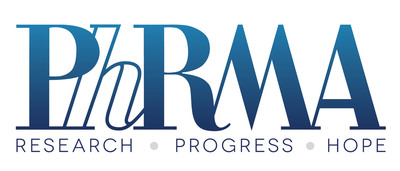The Pharmaceutical Research and Manufacturers of America (PhRMA) today urged the Office of the United States Trade Representative (USTR) to take immediate action to address serious and growing market access and intellectual property barriers in top overseas markets.
|
WASHINGTON, /PRNewswire/ -- The Pharmaceutical Research and Manufacturers of America (PhRMA) today urged the Office of the United States Trade Representative (USTR) to take immediate action to address serious and growing market access and intellectual property barriers in top overseas markets.
In its submission for USTR's annual Special 301 Report, PhRMA called on the Trump administration to name Canada, Japan, Korea and Malaysia as "Priority Foreign Countries" – a designation reserved for countries with the worst market access barriers and the most damaging intellectual property practices. "When foreign countries impose trade barriers and fail to value new inventions, they threaten U.S. manufacturing and jobs," said PhRMA Senior Vice President for International Advocacy Brian Toohey. "Damaging price controls in Canada, Japan, Korea and many other countries are jeopardizing American exports and limiting access to new medicines." PhRMA's submission catalogues foreign government price-setting practices in these countries and others that limit access to medicines developed in the United States and undermine investment in new treatments for Alzheimer's, cancer and other diseases. Ending these policies could add billions of dollars to R&D and reduce overall health care costs worldwide. "American patients should not have to shoulder the burden of paying for global innovation," added Toohey. "The United States must use all available tools in negotiations with foreign countries to open overseas markets and level the playing field for American biopharmaceutical innovators and the 4.7 million jobs they support across the country. The U.S.-Mexico-Canada Agreement was a significant step forward in raising standards across North America. We encourage USTR to accomplish similar goals during upcoming international negotiations." PhRMA also called out countries like Malaysia, Indonesia, Chile and Colombia that threaten to break patents on new medicines. This drastic action – known as "compulsory licensing" – creates significant uncertainty for biopharmaceutical innovators and harms patients by undermining incentives for future research. "Malaysia and other governments are trying to benefit their own domestic companies by expropriating American inventions," Toohey said. "America's trade negotiators must promote effective intellectual property protection and enforcement abroad and ensure compulsory licensing does not become a tool for national industrial policy." PhRMA's Special 301 submission calls on USTR to take urgent action to address concerns in the following countries:
In addition, PhRMA urges USTR to include Chile, Colombia, Indonesia and 11 other countries on the "Priority Watch List". To view PhRMA's complete 2019 Special 301 submission, please click here. Required by the Trade Act of 1974, the annual Special 301 Report identifies foreign countries that deny adequate and effective intellectual property protection or fair and equitable market access for U.S. products. About PhRMA Connect with PhRMA www.PhRMA.org
SOURCE Pharmaceutical Research and Manufacturers of America (PhRMA) |





